Department of NRM
Department of Natural Resource Management
(Agronomy & Agro Forestry, Soil Science & Agricultural Chemistry, Microbiology, Environmental Sciences, Agricultural Engineering & Water Tech Centre)
Department of Agronomy & Agro Forestry
The Department of Agronomy is one of the core disciplines at Sri Krishnadeveraya College of Horticultural Sciences (SKCHS), Anantapur, functioning since 2016. The department plays a vital role in supporting the B.Sc. (Hons.) Horticulture program by imparting fundamental and applied knowledge in the field of agronomy.
Mission and Objectives
The primary mission of the Department of Agronomy is to:
- Plan, undertake and promote quality education and research in agronomy.
- Develop and disseminate efficient and sustainable crop production technologies.
- Enhance productivity and profitability in horticultural crop systems through scientific management practices.
The department also aims to integrate theoretical concepts with practical applications to equip students with the skills needed for effective crop management.
Academic Courses Offered (B.Sc. Hons. Horticulture)
The department offers the following Agronomy Support Courses (ASSC) to horticulture undergraduates:
-
ASSC-2.9.1 – Weed Management in Horticultural Crops
Covers weed identification, classification, and integrated management strategies to minimize competition and crop losses.
-
ASSC-2.9.2 – Water Management in Horticultural Crops
Focuses on efficient irrigation methods, water conservation practices, and scheduling for optimal crop growth.
-
ASSC-3.9.1 – Organic Farming in Horticultural Crops
Deals with organic production technology and practices in horticultural crops, preparation of cow-based liquid organic manures and usage.
-
ASSC-3.9.2 – Introduction to Major Field Crops
Introduces key agronomic crops (cereals, pulses, oilseeds, fibers), their cultivation practices, and relevance in cropping systems.
-
ASSC-3.9.3 – Agro-meteorology and Climate Change
Explores the influence of weather and climate on agriculture, meteorological tools, and climate-resilient farming practices.
-
ASSC-3.9.4 – Introductory Agroforestry
Examines the principles and systems of agroforestry, integrating trees with horticultural crops for sustainable land use.
Infrastructure and Facilities
The department is equipped with a well-established laboratory that supports hands-on learning through:
- Practical experiments related to weed science, irrigation, meteorology, and crop analysis.
- Demonstrations of field equipment, weather instruments, and agroforestry models.
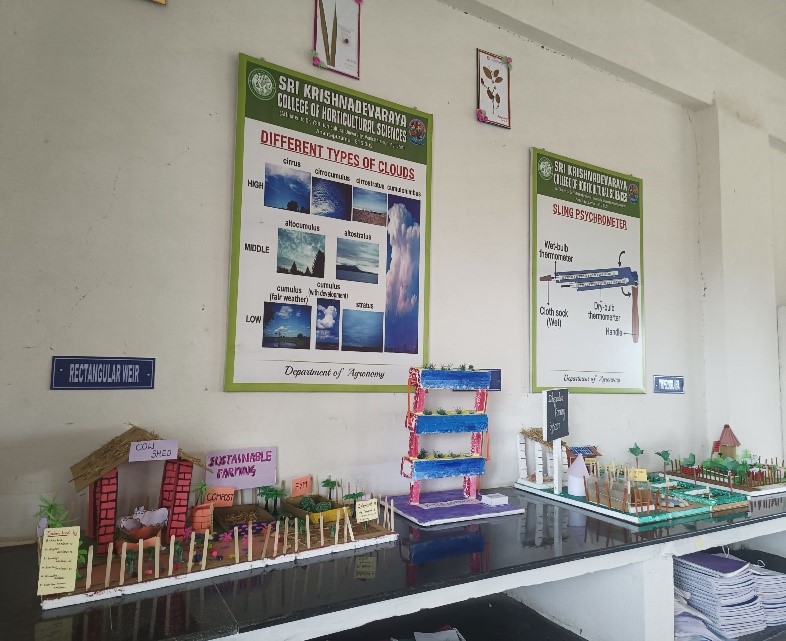
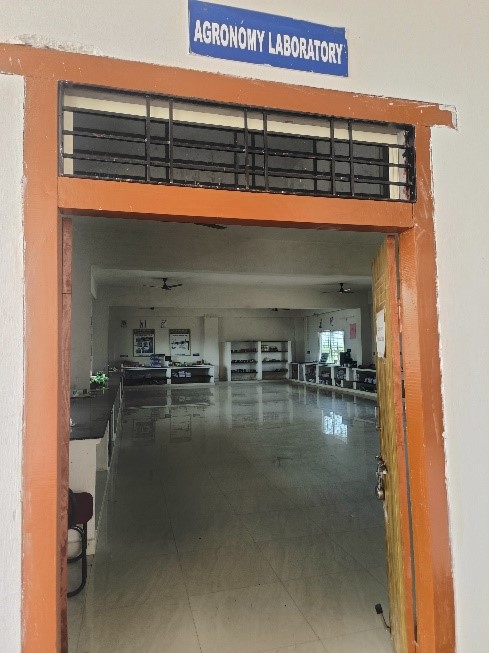
Department of Soil Science & Agricultural Chemistry
The Department of Soil Science was established in Sri Krishnadeveraya College of Horticultural Sciences, Anathapuramu in 2016 to undertake research and teaching programmes.
Courses Offered (B.Sc. Hons. Horticulture)
- ASSC-1.9.1 – Fundamentals of Soil Science
- ASSC-1.9.2 – Soil Fertility, Soil Chemistry, and Soil Taxonomy
- ASSC-2.9.3 – Manures, Fertilizers, and Nutrient Management
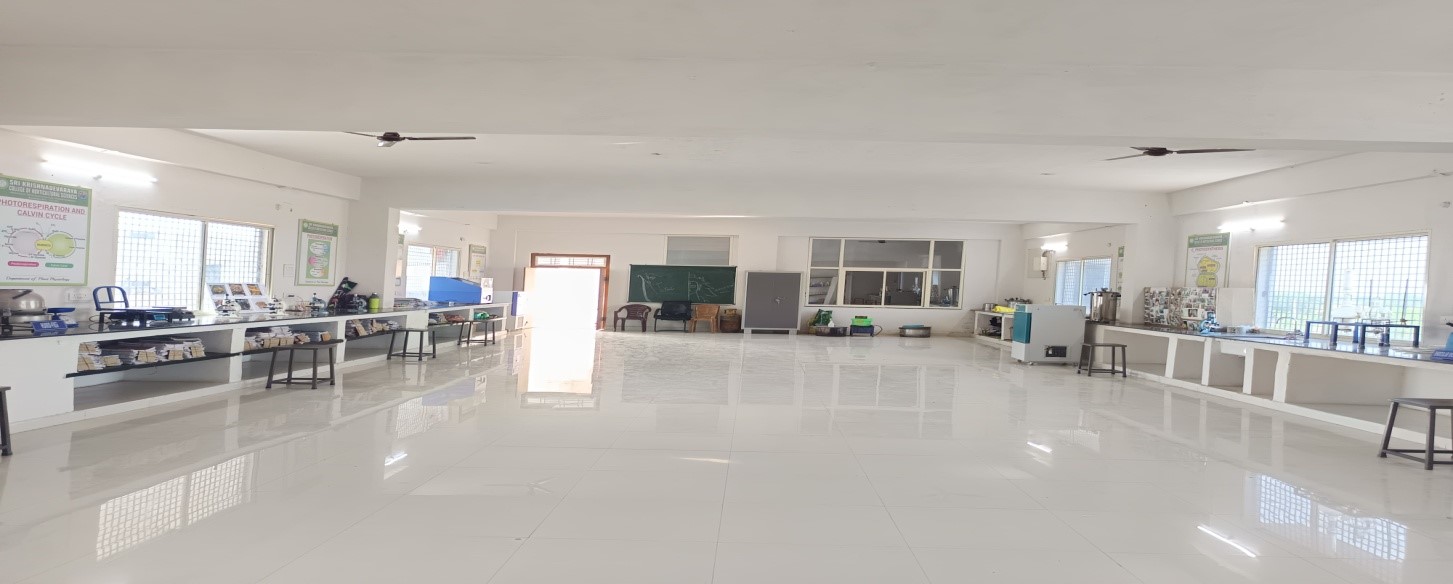
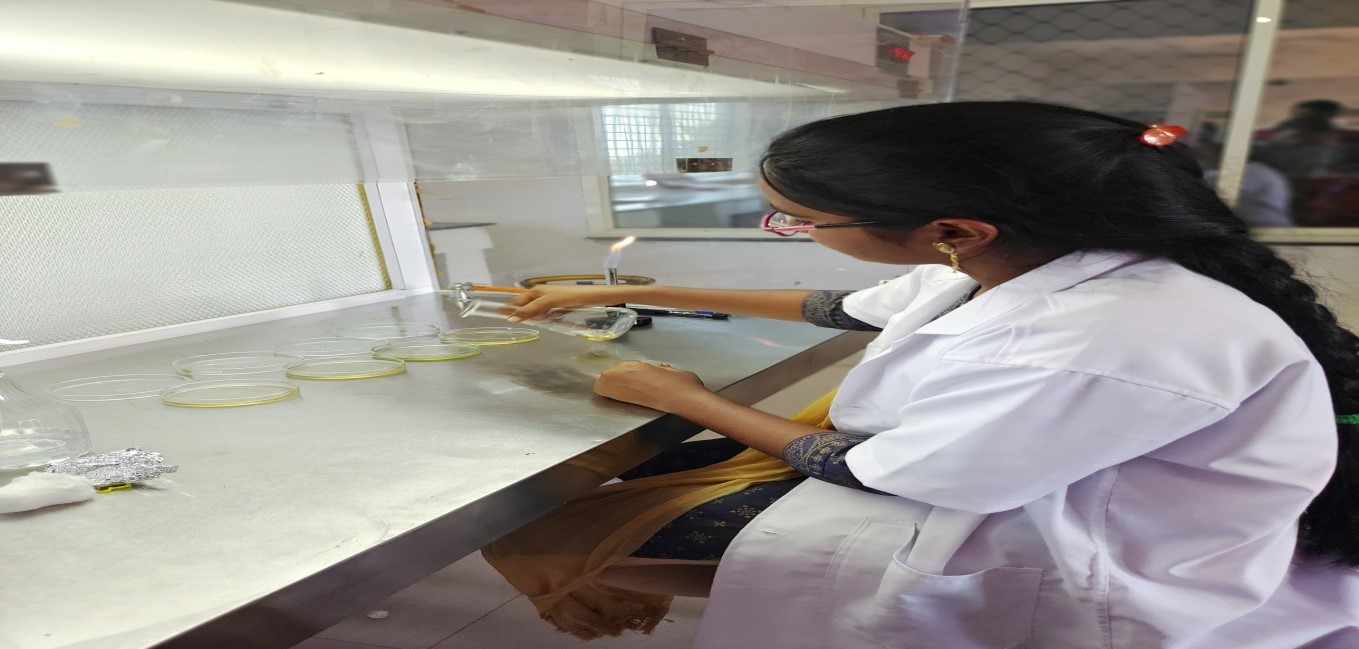
Laboratory and Mandate
The laboratory is fully equipped with various equipment to carry out practicals and experiments. The mandate of this department is to enhance and sustain soil productivity and maintain soil health in an ecologically sound and environmentally friendly manner.
Department of Microbiology
The Department of Microbiology has been functioning since 2016 as one of the minor departments at Sri Krishnadevaraya College of Horticultural Sciences, Ananthapuramu. The main objective of the department is to impart basic knowledge to students on various aspects of microorganisms such as microbial physiology, genetics, and ecology, as well as the beneficial and harmful interactions between microbes and plants and their application in sustainable horticultural practices.
Along with these topics, the department also focuses on laboratory techniques including microscopy, microbial culture and preservation, microbial staining, and more.
Horticultural Engineering & Water Tech Centre (WTC)

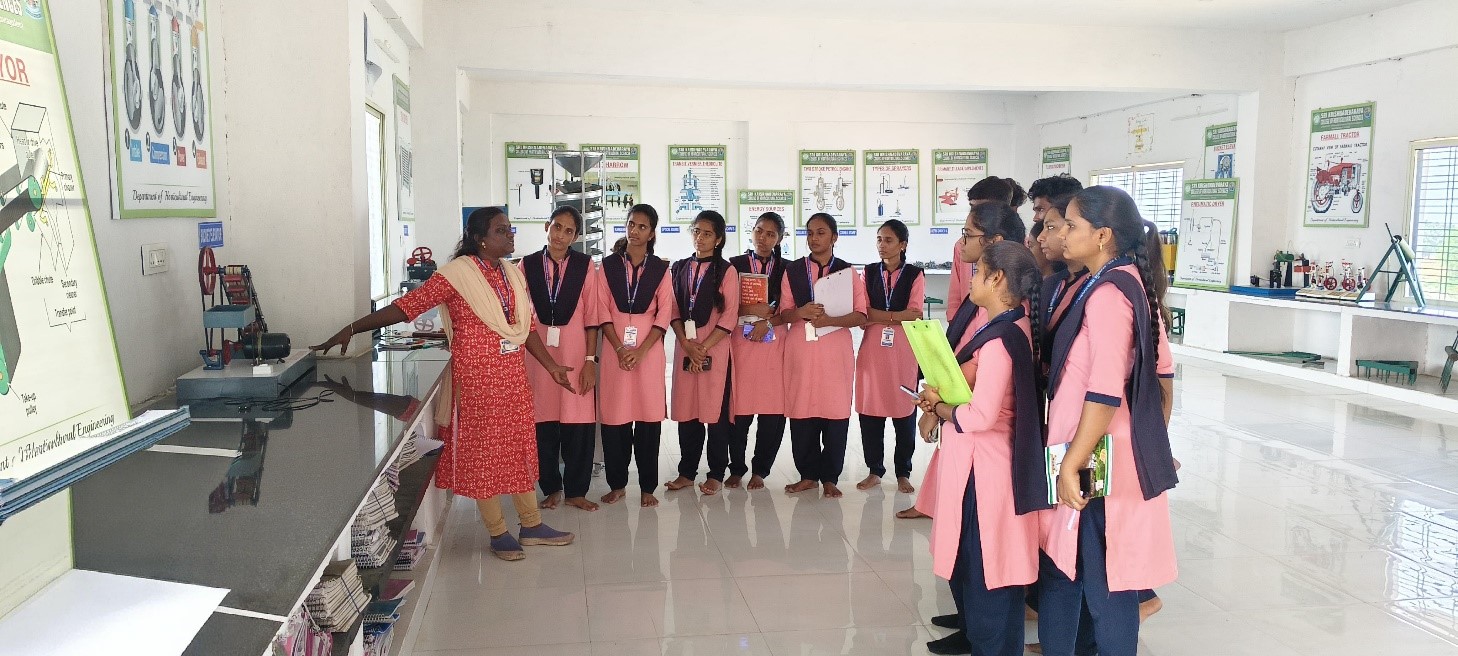
Horticultural engineering involves the engineering of horticultural production and processing. It plays a key role not only in the efficient utilization of costly inputs but also helps in timely operations and reduces physical drudgery through cost, time, and labour-saving technologies and related equipment and machinery.
These technologies can help increase production, productivity, and improve quality to meet stringent standards of both domestic and international markets. They also assist in bringing more area under cultivation through machinery and mechanization, efficient water management, irrigation, and drainage facilities, and conserve soil and water to achieve maximum production with increased efficiency.
Appropriate post-harvest technology, processing, and food engineering activities contribute to better handling, processing, scientific storage, by-product utilization, and value addition. This, in turn, helps increase profits and facilitates the establishment of agro-processing industries in rural areas.
A key goal of this discipline is to improve the efficacy and sustainability of horticultural practices.
Environmental Sciences
Environmental Science is a systematic understanding of living organisms, non-living things, and the interrelationships among them. It integrates knowledge from physical, chemical, and biological sciences along with atmospheric sciences.
In recent years, Environmental Science and management have emerged as important disciplines offering solutions to many environmental problems and opening a variety of employment options. There is a need for trained manpower at every level to address critical issues such as safe and clean drinking water, hygienic living conditions, clean air, fertile land, healthy food, and sustainable development. Environmental protection, management, and legislation are also emerging as new career opportunities
The Department focuses on teaching and addressing environmental issues crucial for the conservation of natural resources. Plant diversity is currently being lost at an unprecedented rate, resulting in a decrease in ecosystem services. About a third of the world's vascular plant species face the threat of extinction due to various destructive activities including over-harvesting, over-exploitation, destructive agricultural and forestry practices, urbanization, environmental pollution, land-use changes, invasive species, global climate change, and more.
Efforts must be increased to develop integrative conservation approaches for plant species conservation. Botanical gardens devote resources to the study and conservation of plants while raising public awareness about global plant diversity. These gardens play a central role in meeting human needs and providing well-being.
This mini-review catalogs a framework for the integrated missions of botanical gardens, including scientific research, in/ex situ conservation, plant resource utilization, and citizen science. On the college campus, the RET Block is dedicated to the collection, cultivation, preservation, and display of a wide range of plants labeled with their botanical names.